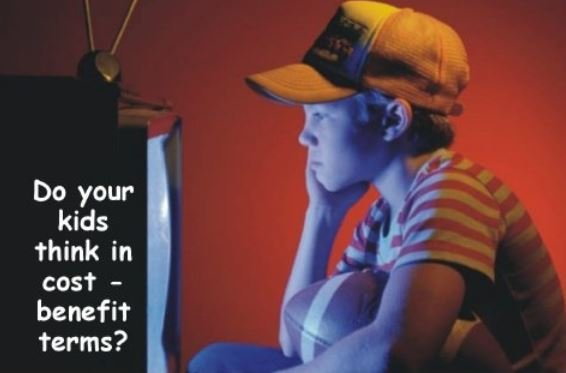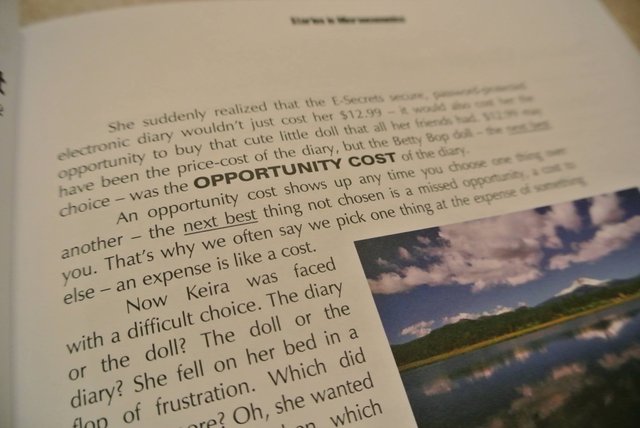Every day we miss opportunities to teach our kids economic lessons, and these lessons usually have little to do with money.
Has your child, for example, ever asked to do more activities than time will allow? My son loves to set up two play dates in one day, sometimes on different sides of town. Or maybe your daughter wants to go swimming and bike riding in the same afternoon. Often, it’s even more complicated: your son wants to sharpen his football skills, begs you to buy a new ball, tries out for the team, and then spends most of his free time watching TV.

In response, we parents just cut to the chase: “Just pick one friend to play with today…” or, “We don’t have time; it’s either the pool or your bike…” or, “Get off the couch and practice the piano!” These are all missed opportunities. Our kids can learn to make more informed decisions if we slow down the decision-making process long enough to point out their opportunity costs.
Kids usually don't recognize opportunity costs, and don't believe they'll have to pay them
An opportunity cost is the next-best alternative we give up when we make a choice. Often, our kids don’t recognize this cost, and sometimes, just don’t believe they’ll have to pay it. When faced with a choice between A and B, children will often pick A now, innocently and optimistically expecting to receive B quite soon after. And many times, what kids give up is worth more to them, in the big picture, than what they’ve haphazardly chosen. In fact, when a child chooses the less valuable option rather than more valuable one, that child has made a bad choice. Learning to recognize best and next-best leads to better choices.

My son once spent all his allowance money on a deck of trading cards (for which he soon lost interest) and then asked us to buy the toy car he could no longer afford. He honestly didn’t realize he was giving up the opportunity to buy the car in order to buy the cards. That is, until we explained opportunity costs to him.
Going to the swimming pool always sounds like fun, until you make your child realize that, because of time constraints (a scarcity of the resource of time) she won’t be able to ride her bike today. Watching TV may seem harmless enough, until you point out that for every hour in front of the tube, that’s an hour they won’t be able to ski, or finger paint, or improve their baseball swing – activities they actually value more.
Pointing out opportunity costs leads to informed choices and fewer protests when parents reveal that, for now, the next-best alternative has been forfeited.
geke.us is a website – for geeks who eke – making economic concepts easy to understand through our memes, books, articles, and venn diagrams. Our economics curriculum for kids, Cost Benefit Jr., uses stories to show how things like opportunity cost, sharing, and marginal utility actually work in a child's world.